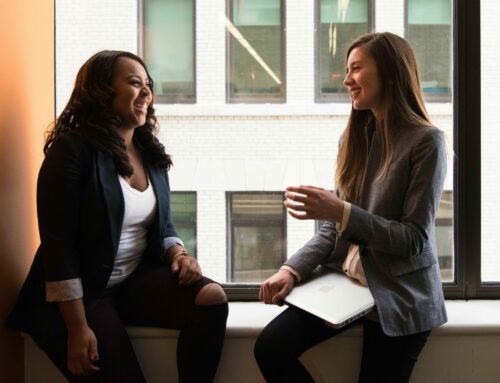
Jenny Morris has been awarded the prestigious Order of Australia Medal in recognition of her outstanding contributions and dedicated service to the community in the areas of leadership and mentoring.
The Order of Australia Medal is a fitting acknowledgment of the significant impact she has made throughout her career and her lasting legacy. Her work stands as a shining example of what can be achieved through passion, dedication, and collaboration.
Jenny has been instrumental in increasing the number of women in leadership in government, corporate, university and public sectors. Her work has not only advanced her field but also enriched the lives of many. Her achievements are a testament to her unwavering commitment, tireless efforts, and the trust she has earned from clients, colleagues and community members alike.
In accepting this honour, Jenny expressed her gratitude and shared her joy upon receiving the award. “I am deeply honoured to receive the Order of Australia Medal. This recognition is not just a reflection of my work but also of the incredible support and trust I have received from so many wonderful people throughout my career. I want to extend my heartfelt thanks to everyone I have had the privilege to work with. Your trust and collaboration have been instrumental in achieving this milestone.”
In a remarkable family achievement, Jenny Morris is one of 5 grandchildren of the late Solomon Morris to receive this esteemed honour. Alongside Jenny, her brother and three cousins[1] have also been awarded the Order of Australia Medal, making a total of five recipients within the same family – a feat that is believed to be a record.
Jenny also took a moment to reflect on her family’s legacy and the significance of their collective achievements. “It is incredibly humbling to know that I have joined my cousins and brother in receiving this award. Our grandfather passed away before any of us had the chance to know him, but his spirit and values clearly live on through the accomplishments of his grandchildren. This is a proud moment for our entire family.”
Over her extensive career spanning 3 decades, she has earned numerous accolades and the respect of her peers including being recognised in AFR/Westpac 100 Women of Influence Awards for her contribution to “creating a bolder and more diverse future for all Australians”
Jenny is dedicated to championing women and forging pathways for them to ascend and succeed in largely male dominated workplaces and more recently, in politics. As an advisor, she has used her innate intelligence, compassion and deep understanding of the human condition, to design bespoke leadership, mentoring and coaching programs for women – programs which have empowered and influenced the lives of many thousands of women, their families, their staff and their fellow employees.
In 2000 Jenny Morris co-founded the boutique consultancy, Orijen Pty Ltd, to provide leadership training and support to emerging women leaders, primarily through mentoring programs, pioneering the design of structured, measurable, sustainable and replicable mentoring programs.
The value of Jenny’s collaborations was recognised when Dell-WITEM (Women in IT Executive Mentoring), was the winner of the 2008 EOWA award for the ‘most outstanding initiative and results for women in the workplace”. This program, now in its 16th year in the APS, is one of its longest standing and successful women’s leadership programs.
In 2014, Jenny Morris founded – Women for Election (Aus), a not-for-profit organisation dedicated to increasing the number of women elected in government. She had never been a politician, nor worked in the political arena, but knew, at a deep level that in order for there to be equality and equity in Australia, there needed to be gender diversity in our federal and state parliaments and local councils.
Through the WFE programs, Jenny has overseen the increase in numbers of women both standing for elections and winning seats. Her efforts were rewarded when, in the 2021 federal election, 58 women were elected to the House of Representatives. This is the highest number of women ever in the Australian Parliament and is an increase from 26% in 2014 to 38% in 2022.
At the same time, Australia’s ranking in the World Economic Forum’s Gender Index for women’s political empowerment improved with Australia now ranked 29th for Political Empowerment, a significant increase from 49th place in 2018.
She has helped change the face of government in Australian.
Background. Jenny Morris started her career as a teacher and school counsellor in the NSW public service before taking the position of School Councillor at Loretto College. She then moved to Catholic Education, where she established the first standards/rules/requirements for the integration of special education children into Catholic schools.
Jenny has spent her lifetime giving back through her volunteer roles in NFP’s, including co-presidency of NEEOPA, chair NSW Council for National Association for Prevention of Child Abuse and Neglect (NAPCAN) and chair of Women For Election(WFEA), which is now recognised as the foremost national provider of programs to inspire, engage and equip women to enter politics.
In 2021, after 7 years, Jenny stepped down from the chair of WFEA but continues to contribute as Emeritus Chair and actively drives for equal representation and gender inclusion.
The following media report on the resignation of Jenny Morris from WFEA illustrates her qualities of compassion and selflessness as she recognised the need for a change in leadership:
“Today is my last day as Chair of Women for Election Australia. Together with the like-minded women and men who have served on the Board, as ambassadors, as advisers or volunteers, we have built something special. It is overwhelming to reflect on the thousands of women our courses, events and activities have influenced. It is with great pride that I reflect on what WFEA has achieved.
Of her time as Australia’s first female Prime Minister, Julia Gillard said that gender ‘doesn’t explain everything’ about her prime ministership, ‘it doesn’t explain nothing; it explains some things. And it is for the nation to think in a sophisticated way about these shades of grey.’
Seven years on, 2021 has more than any other year, brought greater clarity around the challenges facing women in elected office and politics. Clearer still are the barriers to women’s election to office and the countless benefits their presence in the halls of power bring to improving the democratic process, to women and families through better policy outcomes, and to society more broadly.
The establishment of the new cabinet task force on women’s equality, safety, economic security, health and wellbeing is a practical acknowledgement that more needs to be done for women in Australia and that involving women can only lead to better outcomes.
When I founded Women for Election Australia in 2014, it was clear that there was a need for an organisation dedicated to inspiring and equipping women to get elected. The private and public sectors were taking action to empower women leaders – they could see the strategic and commercial benefits – while the political class continued to lag behind.
A testament to this need is the speed with which our purpose and our passion has intersected with an emerging wider, mainstream movement that acknowledges the need for more women in politics. Within 5 years our fledgling organisation has come to maturity and has the capacity, expertise and experience needed to deliver when the Australian community needs its services the most.
For myself in 2021, the contrast has been dialled up and there are no longer any shades of grey. Things are indeed black and white. There is an urgency to nurture and keep more women in politics throughout Australia. If we’re to rise to the challenges of the 21st century, restore the public’s faith in politics and ensure democracy delivers once again, more women must be at the heart and helm of our democratic institutions.
While I retain the role of Emeritus Chair, it’s not without some sadness that I step down. The empowerment of women leaders has been my passion for over 20 years and is enduring. WFEA was born of that passion.
I thank all those who have supported WFEA, whether it be through time, money or simply a leap of faith that we were a safe pair of hands and would deliver on our promise. In particular, my fellow directors and our CEO Licia Heath have been extraordinarily generous with their time, blood, sweat and tears and I will miss our constant collegiality.
I leave with great confidence that WFEA is superbly placed to continue this work and make our collective vision for a better, more equitable Australia, a reality.”
[1] Robyn Lenn OAM 2005, Dianne Hirsch OAM 2009, , Jeanette Tsoulos OAM 2023, Michael Morris OAM 2023





